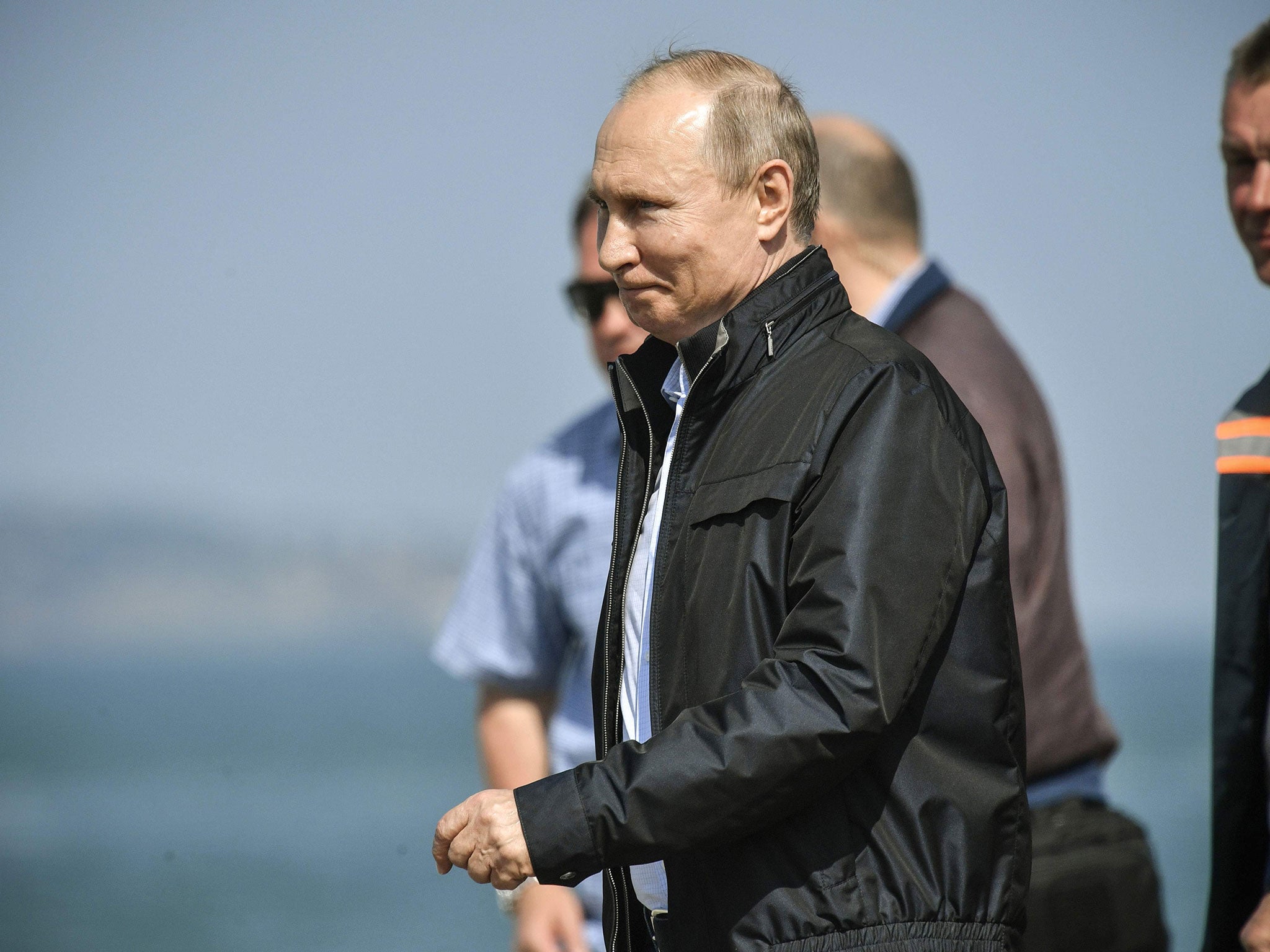'It's a real celebration!' Russia opens controversial 12-mile bridge to annexed Crimean peninsula
Completed ahead of schedule, the bridge has cost £2.7bn
Your support helps us to tell the story
From reproductive rights to climate change to Big Tech, The Independent is on the ground when the story is developing. Whether it's investigating the financials of Elon Musk's pro-Trump PAC or producing our latest documentary, 'The A Word', which shines a light on the American women fighting for reproductive rights, we know how important it is to parse out the facts from the messaging.
At such a critical moment in US history, we need reporters on the ground. Your donation allows us to keep sending journalists to speak to both sides of the story.
The Independent is trusted by Americans across the entire political spectrum. And unlike many other quality news outlets, we choose not to lock Americans out of our reporting and analysis with paywalls. We believe quality journalism should be available to everyone, paid for by those who can afford it.
Your support makes all the difference.On Wednesday morning, at 5.30am local time, Russia’s only direct road link to Crimea was opened to traffic. The project, a major technical and geopolitical challenge, had been pushed right to the top of the state’s agenda. It was completed several months ahead of schedule, and at an eye-watering cost of £2.7bn.
President Vladimir Putin made the maiden trip across the bridge on Tuesday, leading a convoy of lorries from Russia to Crimea in under 17 minutes. Today, it was left to the Russian foreign ministry’s spokesperson Maria Zakharova to open the route to the public.
The excitable official was flanked by several dozen bikers as she did so.
“Unforgettable! It’s a real celebration,” she said. “The numbers wanting to travel on the bridge today are simply huge – young and old, people connected with Russia and with Crimea.”
At twelve miles long, the Crimean bridge is now the longest in Europe, and one of its most advanced.
Trying building conditions and seismic activity have previously conspired to get in the way of construction.
The first plans to build the bridge appeared during the time of Nicholas II – and were scuppered by the First World War.
The Nazis then attempted to build a permanent structure during the Second World War – that was scuppered by the Red Army.
The German plans were adopted by Stalin and construction was completed in six months. But Stalin’s bridge collapsed just a few weeks after its engineers were awarded medals.
This time, the “historical mission” of providing a material link between the annexed peninsula and the mainland has given the project unstoppable momentum.
Up until now, the link between Russia and its annexed peninsula had been provided by a ferry crossing. With movement at the land border with Ukraine restricted following the military campaign in the Donbass, the ferry became a critical and high-demand link. There were often long tailbacks of cars and lorries, especially in high season or in times of poor seafaring weather.

Ukraine has described the construction of the bridge as a violation of international law.
On Twitter, Ukraine’s foreign minister Pavlo Klimkin said Russia had built a bridge to nowhere: “This is a bridge between occupied Crimea, where people are scared and disappear, and Russia, where 1,600 can be arrested in one day for a peaceful protest. Both directions are roads to nowhere.”
The British Foreign Office has also condemned the opening of the bridge. In a statement, minister for Europe Alan Duncan said the bridge was a “violation of Ukraine’s sovereignty”, and “a further example of Russia’s reckless behaviour”.
It is unlikely the minister’s words will receive anything other than short shrift. Post-Skripal, relations between Russia and Britain hover at historical lows. Viktoria Skripal, the niece of the former spy, Sergei, was on Tuesday again refused a visa to visit the UK. Mr Skripal continues to be treated for exposure to a nerve agent, which the UK has blamed on Moscow. Russia denies any involvement.
On Wednesday, Valentina Matviyenko, head of Russia’s upper parliamentary chamber, warned things were unlikely to get better this side of a general election.
“You can’t count on things changing while those in power are intent on pushing Russophobia and while the British government is so imbued with an anti-Russian policy,” she said.
Subscribe to Independent Premium to bookmark this article
Want to bookmark your favourite articles and stories to read or reference later? Start your Independent Premium subscription today.

Join our commenting forum
Join thought-provoking conversations, follow other Independent readers and see their replies
Comments